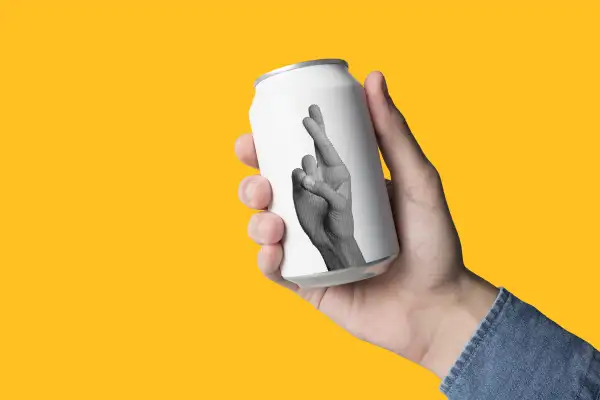4 Ways Your Beer Might Be Lying to You

When you buy a beer labeled as a "Vermont" ale, it's reasonable to assume that the brew actually comes from Vermont. But that assumption could be wrong.
As a contributor to the Burlington Free Press pointed out this week, a company called the Fieldwork Brewing Co. makes a beer called "The Meadows," and the style described on the label is that of a "Vermont Farmhouse Ale." But neither the beer nor the brewery is based in the Green Mountain State: The operation is run out of Berkeley, Calif.
Fieldwork might simply be paying respectful homage to the rich brewing tradition in Vermont, which has the most craft breweries per capita in the country and is known for acclaimed cult favorite beers like Alchemist's Heady Topper. Or this could be a case in which marketers are trying to give a beer extra cachet by intentionally deceiving people into thinking it originates on the other side of the country and must really be something special.
Either way, it's easy to see how beer enthusiasts could be confused by the label. And it's understandable that Vermont brewing interests are protective of the state's reputation—and upset by the idea that outsiders might be taking advantage of it. "I have, and a lot of others have, worked really hard to build the Vermont brand," Matt Cohen, owner of Fiddlehead Brewery in Shelburne, just south of Burlington, told the Free Press. "I don't know what steps we need to take, but something needs to be done to protect the Vermont name."
Fieldwork is not the only brewery to give customers the idea that its beers are from Vermont when they most certainly are not. Beers with names such as "Full Vermonty" and "Vermont Session IPA" are produced in upstate New York and northern California, respectively.
The only way to find out where a beer is made is to look at the fine print on the label for a line spelling out where it was brewed and bottled. But sometimes even that information doesn't explain everything that drinkers might want to know about their beer. Here are a few other ways that beer labels and marketing may be misleading you.
"Imported"
Beer brands such as Beck's, Fosters, Kirin, Bass, and Red Stripe are generally considered imports, and consumers pay a premium for them over their mass-market domestic equivalents. Yet these beers have actually been brewed in the U.S. for years, and some consumers have sued because they feel like they'd been deceived.
In 2015, beer giant Anheuser-Busch InBev agreed to settle one of the suits, which alleged the company "misrepresented to consumers that Beck's Beer is brewed in and imported from Germany." Specifically, Beck's packaging featured phrases like "Germany Quality" and "Originated in Bremen, Germany"—even though the beers sold in American stores were produced in Missouri. The company admitted no wrongdoing, but customers who purchased Beck's over the years received up to $50 in the settlement.
Since then, beer companies have gotten more careful. But beer customers might have to look closely before figuring out that, for instance, that four-pack of Guinness in the store wasn't brewed in Ireland but in Canada or perhaps (soon) America.
"American"
Surveys show that 80% of Americans are willing to pay extra for goods that are "Made in the USA," and few brands have pushed the patriotic marketing angle more than red-white-and-blue Budweiser. The brand has been the official sponsor of a "Made in America" concert series, and last summer the beer was sold with special labels substituting "America" instead of Budweiser on cans and bottles.
Yet while Budweiser is brewed in America, it is not produced by an American-owned business. Budweiser, Bud Light, Busch, and Michelob are among the many mass-market beer brands people think of as American, but which are in fact owned by Anheuser-Busch InBev, a global conglomerate with headquarters in Belgium.
"Craft"
The Brewers Association has a very clear definition for the term "craft brewer." To qualify, a brewer must be small (producing 6 million barrels or less annually), independent (a large non-craft brewer can own no more than 25% of the company), and traditional (using classic ingredients like malted barley). But the definition is not accepted by everyone in the industry, and some feel like the term technically applies to brewers that don't really deserve the label.
For example, Brooklyn Brewery sold a 24.5% stake in the company to the global brewing firm Kirin Holdings last fall, and the Brewers Association still regards Brooklyn as a craft brewer because it (just barely) qualifies under the independent ownership rule.
So-called "crafty beers," which are marketed as craft products even though they're fully owned by the world's largest beer companies, are even more contentious in the industry. We're talking about popular brands such as Blue Moon (owned by MillerCoors), Shock Top (ABInBev), and Goose Island (also ABInBev).
You won't hear about the corporate overlords for these brands on beer labels or websites, however. The history sections of the Blue Moon and Goose Island websites focus on their visionary entrepreneurial beginnings, while skipping over the fact that the former was launched as an experiment by Coors and the latter was purchased in 2011. So if your definition of a craft beer is one that's owned by a small, independent company, these certainly don't hit the spot.
